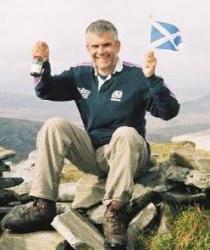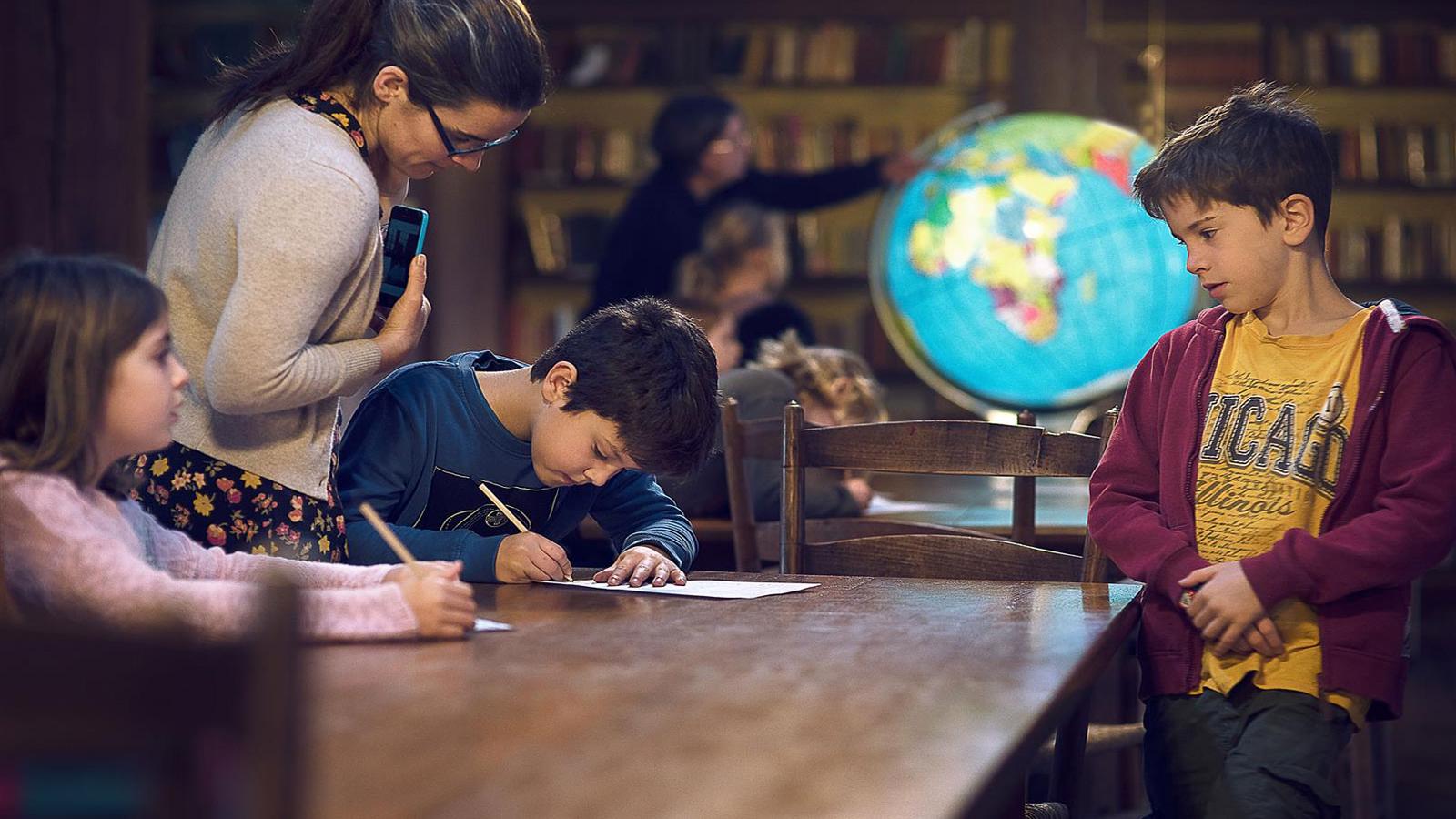
It took Michael Bird quite a while to realise that he was the son of a bona fideBedales legend. “Going through Dunannie, Dunhurst and Bedales itself, having my father as a teacher at the school was just the way things were,” he says. “These days, when I come back, as I did recently for our 35th anniversary reunion, I realise the huge respect in which he is held.”
‘Maverick’, ‘iconoclast’, ‘genius of a teacher’ – all these epithets and more have been heaped on George Bird, but for Michael, it was not his father who initially inspired him to follow the path of the linguist. “I know better than most what a remarkable linguist and original teacher he is, but my love of German in fact goes back to a teacher who was not at Bedales for long enough, Richard Stokes,” Michael recalls. “He served us German wine during a class and held regularLiederabende at his house, which stay with me to this day. I still know reams of German Lieder by heart.”
By the sixth form at Bedales, Michael was also studying Russian, inspired by another member of staff. “David Thompson, who went on to become Head of BBC Films, taught English and film at Bedales for a while, and one day he brought in an old Soviet black and white film of a Chekhov story,” Michael explains. “That double English lesson did it for me – Russian was a challenge available in the sixth form to those who had done well at other languages, and I was one of three of us who did it to A level in two years – with my father. He taught us so much Russian within those two years, it more than got me through my degree!”
Cambridge University came as something of a disappointment. “By comparison with Bedales, the teaching was vastly inferior, for a start,” he observes. “I was also quite overawed at first. At Bedales, one of the things that I had valued was the democracy, the absence of hierarchy, exemplified by calling teachers by their first names, and the sense of community embodied in evening assemblies and Jaw on a Sunday that are among my clearest memories of life at school. These are values that lately I realise that I’ve taken with me through my professional life.”
A year at Voronezh University in the Soviet Union, another year as a Kennedy Scholar at Harvard and two years teaching English in Vienna would ensue before, in 1985, Michael joined the institution that has been his professional home ever since – the British Council. “I suppose that I’m one of the last generation to look at a job and imagine that they would be doing the same thing years later,” he reflects. “The British Council fulfilled a desire to find a job that was more than a job. It also provided an ideal outlet for my Wanderlust. When I was at Bedales, I obviously spent the holidays in the school, while my friends would disappear to all sorts of exotic locations. I know that it’s partly to compensate for that in some way that I’ve been travelling ever since.”
Michael’s itinerary over the past twenty-seven years would make Phileas Fogg proud. Moscow, Brussels, St. Petersburg, Kyiv, Edinburgh, Berlin, Vienna and now Istanbul, hub for “Wider Europe”, the slightly nebulous group of which Michael is regional director. This features such culturally diverse places as Turkey, Israel, Bosnia & Herzegovina and Ukraine among a total of 16 countries for which he is responsible.
“The British Council is about connecting people worldwide, and we employ around 7,000 people to do just that. The best way to start that process is to speak languages, which gets you beneath the skin of other countries and helps you to understand their people,” Michael begins. “I’m speaking to you from Kyiv, where we are training Ukrainian teachers of English and providing the country with English examinations that have real integrity. It is by no means only about language, however. When I eventually leave the British Council, I think that it will be the arts events that I have organised that will have stood out most for me. One of the most important things that Bedales gave me was my love of music; I remember another inspirational teacher, William Agnew, taking us to Winchester Cathedral to perform Britten’s War Requiem, and one of the projects I’ve done for the British Council of which I’m most proud was a performance of the War Requiem in St. Petersburg, where more people died in one city than Britain lost in the whole of World War II. That was in 1995, 50 years on from the end of the war, and we did it with a Russian soprano, British tenor and German baritone.”
For an institution that receives so much praise abroad, the British Council is sometimes strangely undersold back in the UK, where its role is often misunderstood. “Yes, only in Britain,” sighs Michael. “When I was the British Council’s country director for Scotland, we were able to raise our profile because it was post-devolution and people were actually asking questions about our purpose. It was satisfying to answer those questions, because we were delivering for Scotland and connecting Scotland and the world. And we are a great British institution, as well as a model of entrepreneurial public service.”
Despite the economically straitened climate, Michael remains buoyant about the British Council’s future. “There is something of a misperception out there that we’re closing offices all over the place,” he says. “In fact, we’re in great shape. In places like Georgia, for instance, we’ve just opened an English teaching centre. Kazakhstan, where they’ve discovered more oil under the Caspian Sea than there is in Alaska, has huge educational needs that we are able to meet. Look at Uzbekistan, a country where other international organisations have found it almost impossible, but where we’ve had so much success. We’ve taken our share of economic pain in the past few years, but we’re paying our own way more effectively than ever.”
Still only in his early 50s, Michael has plenty of ambitions remaining for his personal and professional lives. “I hope that I’ve another ten years at the British Council, during which I’d love to be the country director for Russia,” he suggests. “Russia is a big part of my life and I want to see how the story continues.” An inveterate walker, Michael has conquered Scotland’s 282 ‘Munros’ (peaks of 3,000 feet or higher) and is now a third of his way through Scotland’s 221 ‘Corbetts’ (hills of between 2,500 and 3,000 feet). Finally, of course, there are the trips back to Bedales to reconnect with the school that has shaped his life. “It’s funny,” says Michael, “but every time I go back, particularly when I experience the stillness of the Bedales library once again, or Steep church, I feel connected and it still feels like coming home.”
Michael Bird was interviewed by James Fairweather in Autumn 2012.
